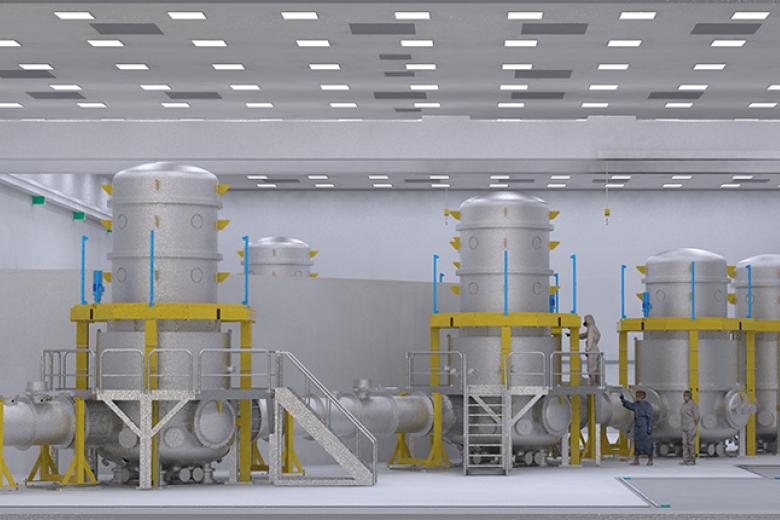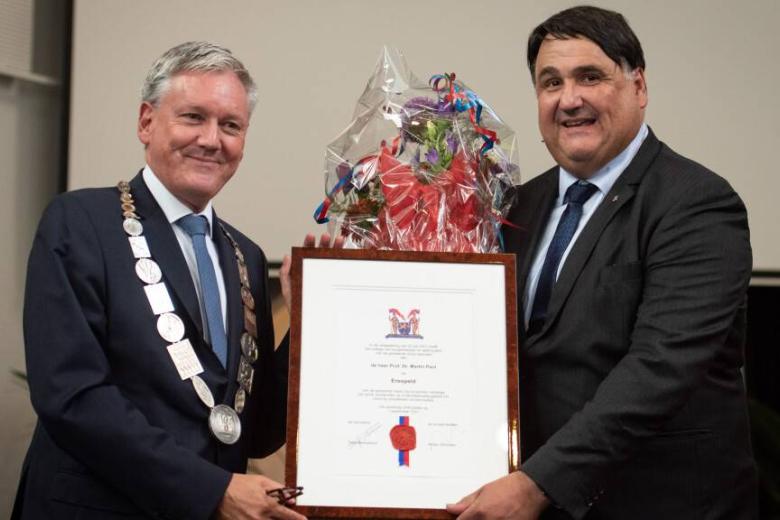Healthier gut flora thanks to food processing waste
Waste from the food processing industry can be used to improve the gut flora of people with obesity, according to the findings of a study by Carlota Bussolo de Souza, who received her PhD on the topic at Maastricht University (UM) last Wednesday. In the intestines of overweight people, fermenting fibre from fruit and vegetable peel boosts the level of the healthiest type of metabolite, butyric acid. This has been shown not only to protect against bowel cancer, but also to play a vital role in the energy and fat metabolism.
Artificial gut
Bussolo de Souza conducted her doctoral research with a grant from the Brazilian government at the UM campus in Venlo, where she used the TIM models in the lab of Professor Koen Venema. These are a sort of artificial gut that very closely simulates the microbiome in the human intestines. One model was fed with faeces from healthy people, the other from people with obesity – overweight people generally host a less thriving bacterial population in their gut than slim people do: they have not only fewer bacteria, but also fewer varieties. The researchers then fed the artificial intestines on a diet of waste from the Brazilian fruit and vegetable processing industry. This proved to have a particularly positive effect on the microbiota in people with obesity.
Orange peel
Carlota Bussolo de Souza concentrated her research specifically on waste from certain fruit and vegetable processing plants in Brazil, where this is an important sector. A third of all the world’s oranges are processed in Brazil, for example in orange juice production. Bussolo de Souza collected three different kinds of peel: from cassava, oranges and passion fruit. The peel was ground into powder and fed into the artificial gut in Venlo – with striking results. ‘It’s probably the specific combination of fibre from the peel that has a positive effect on gut flora in overweight people,’ Professor Venema explains. ‘However, you should see this as a supplement to a healthy diet with lots of fruit and vegetables, not as a replacement.’
Food processing waste
The Netherlands is home to a large food processing industry that has been working hard to find ways to generate more value from the waste it produces. Potato waste, for example, is used not only as livestock feed, but also increasingly to make bioplastics, biofuel or chemicals. ‘It would be great if French fry and potato chip producers could use their waste to contribute to the fight against the obesity epidemic and the increase in related conditions such as type 2 diabetes or cardiovascular disease,’ Venema muses. ‘Research would be needed though, because potatoes were outside the scope of this study.’
Also read
-

-
International gravitational wave laboratory opens in Maastricht
Demissionary Minister of Education, Culture and Science Ingrid van Engelshoven will open ETpathfinder in Maastricht this afternoon. The state-of-the-art physics laboratory will serve as a testing ground for the development of technologies for future gravitational wave detectors.

-
Martin Paul receives city of Venlo's badge of honour
UM President Martin Paul received the badge of honour ('erespeld) of the city of Venlo on 7 September from Mayor Scholten.
